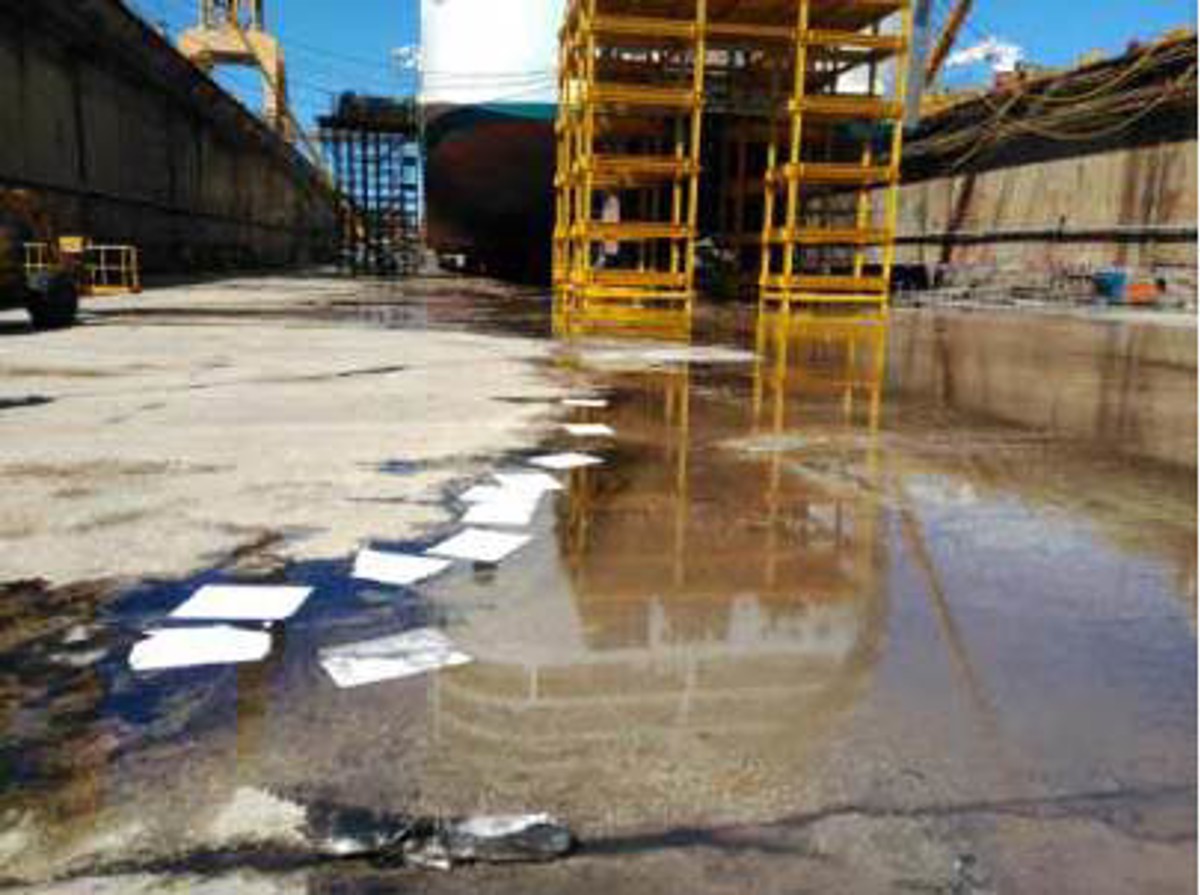Accidental discharge of bilge water in dry dock
- Safety Flash
- Published on 4 July 2016
- Generated on 2 March 2026
- IMCA SF 18/16
- 2 minute read
Jump to:
A Member has reported an incident in which there was an accidental discharge of bilge water during a dry dock.
What happened?
The incident occurred when dry dock personnel mistakenly opened the bottom plug of the ‘Engine Room Bilge Water’ tank which caused bilge water to be drained into the graving dock.

The dry dock personnel responded quickly and immediately stopped the drain pump, which then allowed the water in the dock drain into the basin outside the dock.
The dry dock personnel took immediate action by using absorbent sheets to clean and remove traces of oil.
There was no pollution of the water in and around the basin.
Our member’s findings were as follows:
- Dry dock personnel wrongly opened the bottom plug of the ship's tank without checking with Chief Officer.
- There was inadequate communication and coordination between ship and dry dock personnel.
- There was inadequate of supervision on dry dock personnel.
The following preventative actions were taken:
- All bottom plugs were checked and marked in the docking plans, highlighted the critical bottom plugs and discussed with dry dock personnel during pre-docking meeting.
- Particular care should be taken to ensure that the bottom plugs of tanks are opened after confirmed identification and under the direct supervision of the Chief Officer.
- Effective pre-operation risk assessment and tool box talk should be conducted before carrying out the task – and this should be recorded.
Members may wish to review Guidance on safety in shipyards.
IMCA Safety Flashes summarise key safety matters and incidents, allowing lessons to be more easily learnt for the benefit of the entire offshore industry.
The effectiveness of the IMCA Safety Flash system depends on the industry sharing information and so avoiding repeat incidents. Incidents are classified according to IOGP's Life Saving Rules.
All information is anonymised or sanitised, as appropriate, and warnings for graphic content included where possible.
IMCA makes every effort to ensure both the accuracy and reliability of the information shared, but is not be liable for any guidance and/or recommendation and/or statement herein contained.
The information contained in this document does not fulfil or replace any individual's or Member's legal, regulatory or other duties or obligations in respect of their operations. Individuals and Members remain solely responsible for the safe, lawful and proper conduct of their operations.
Share your safety incidents with IMCA online. Sign-up to receive Safety Flashes straight to your email.